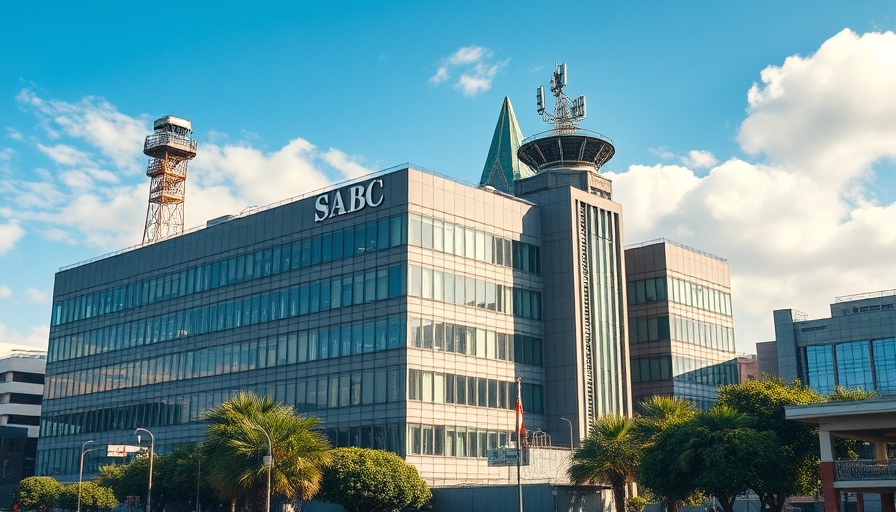
The Importance of Timely Policy Reforms for the SABC
The South African Broadcasting Corporation (SABC) has recently voiced serious concerns over policy delays that threaten its long-term financial viability. As revealed in a meeting between parliamentary members and SABC management, slow progress on crucial reforms, especially the SABC Bill, is seen as a barrier to establishing a stable funding model necessary for the broadcaster's survival. This call for action comes amidst ongoing financial struggles, including a reported loss of US$61 million in the previous fiscal year.
A Critical Turning Point: Understanding the SABC Bill
At the center of the SABC's challenges is the need for legislative clarity and urgency. The SABC Bill aims to provide the framework for a sustainable public broadcasting funding model, yet the delays in its passage have left the broadcaster in a precarious position. Without the rapid implementation of this bill, the SABC could continue to face mounting financial pressures, leading to deeper cuts in programming and resources. As a significant stakeholder in South African media, the health of the SABC is vital for a balanced public discourse, highlighting the need for prompt legislative action.
Funding Challenges: A Deeper Look
The SABC heavily relies on various revenue streams, including advertising, content sales, and government grants, which collectively account for a significant portion of its income. Recent discussions have pointed to the broadcaster generating approximately 83% of its revenue through these means, yet the increasing evasion of TV license fees, which have risen to a staggering 87%, further complicates its financial landscape. In response, the broadcaster is exploring new payment mechanisms, including a proposed household levy targeting all households with access to SABC services, whether they utilize them or not.
Diverse Perspectives Among Stakeholders
Reforming the funding model has stirred a variety of opinions among stakeholders, with the communications minister, Solly Malatsi, suggesting integrating TV license fees with other tax frameworks to improve collection. However, as these are only preliminary ideas, reaching a consensus on the best course of action remains crucial. The path forward will require balancing financial sustainability with the ability to provide quality public service broadcasting, serving the interests of citizens across the nation.
The Role of Digital Migration in the SABC's Future
A key initiative in the SABC's recovery plan includes transitioning from analogue to digital broadcasting. This digital migration, which aligns with the government's overarching objectives, is poised to streamline operations and open new avenues of revenue generation through innovative content distribution. However, the success of the SABC's digital transition hinges on timely policy enactment and stakeholder buy-in, underscoring the interconnectedness of technology and policy in the media landscape.
What Lies Ahead: Future Predictions and Trends
The SABC’s future rests precariously on the timely passage of essential legislation, as well as the implementation of strategies to rectify its financial deficits. With ambitions set for a return to profitability by 2028, the broadcaster must navigate not only financial recovery but also the evolving landscape of media consumption influenced by technology and changing audience behaviors. Failure to address current issues could result in far-reaching consequences, impacting not just the broadcaster but the broader public discourse in South Africa.
Calls to Action: Protecting Public Broadcasting
The SABC's situation highlights the larger issue of public service broadcasting in South Africa. As professionals in the media and public sectors, it is vital to advocate for swift reforms and support sustainable funding models. The health of public broadcasting is crucial for democratic engagement and access to information—core tenets that define a functioning society. Immediate attention to policy challenges is not only necessary for the SABC but essential for the future of media integrity in South Africa.
 Add Row
Add Row  Add
Add 


Write A Comment